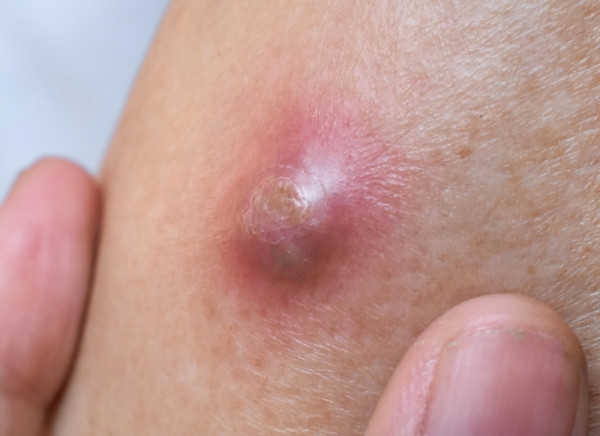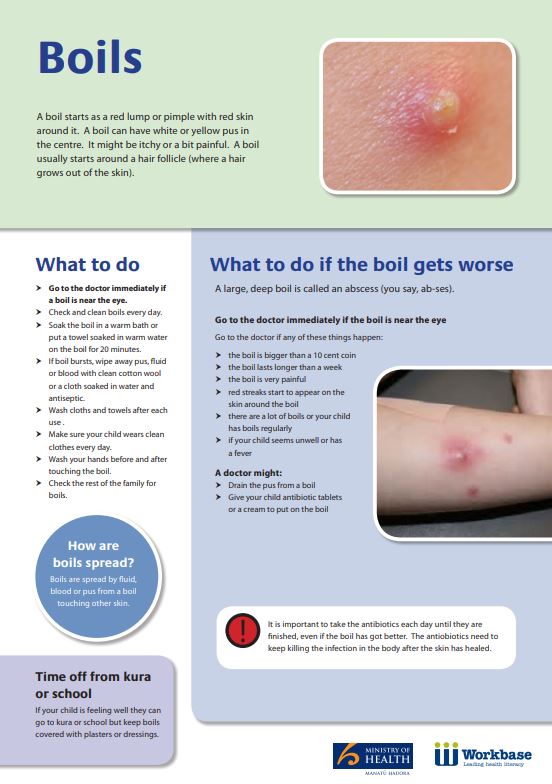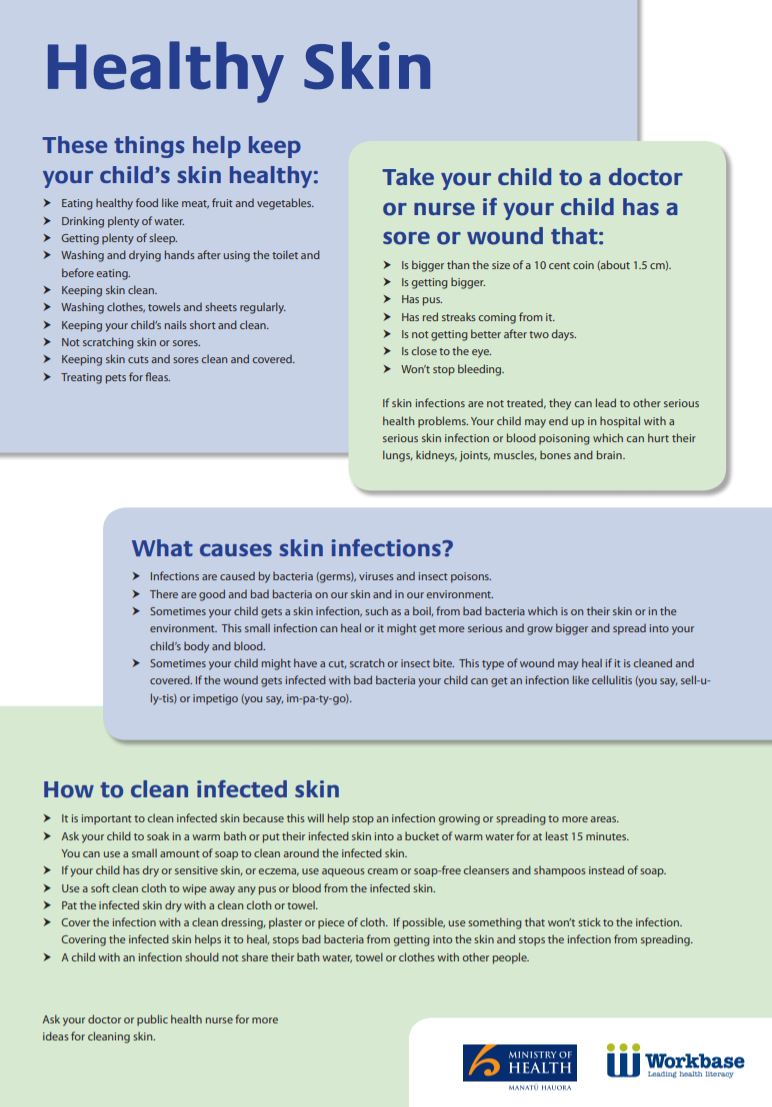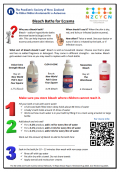A boil is a tender red lump on your skin caused by an infection of a hair root or sweat pore. Boils are usually caused by a bacteria called Staphylococcus aureus, which often lives harmlessly on human skin. However, any break in your skin barrier leaves it vulnerable to infection and can lead to the development of a boil.
Large boils can form an abscess, which is the build-up of pus in a pocket under your skin. A cluster of boils that have multiple white pus heads is called a carbuncle.

Image credit: Depositphotos









